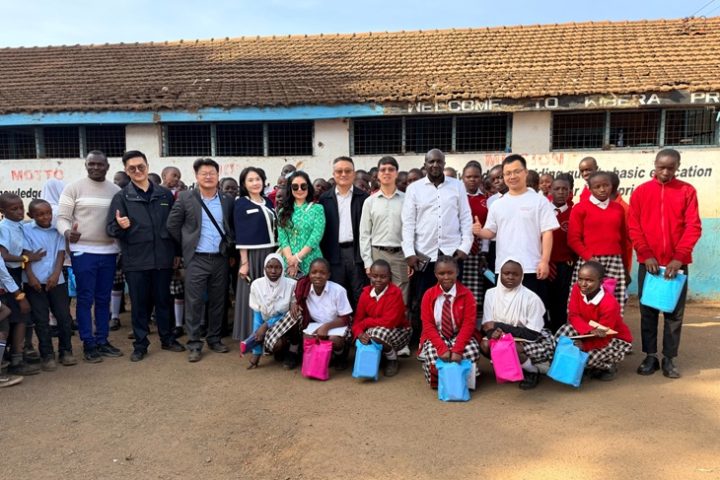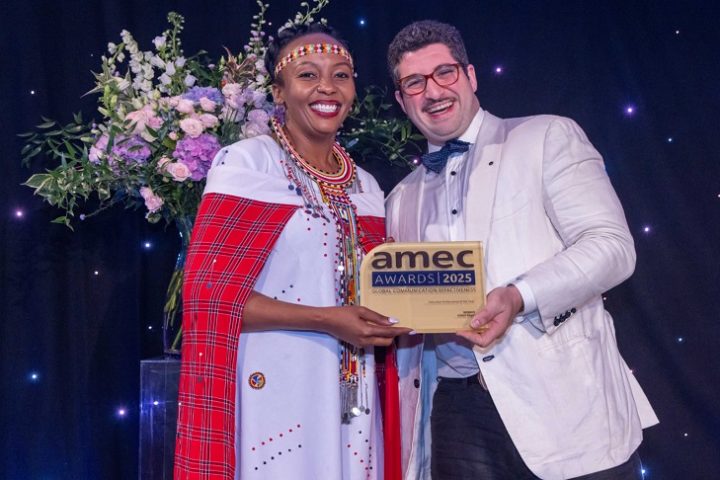When the United Nations authorized the Multinational Security Support Mission (MSS) to Haiti in October 2023, Kenya stepped forward to lead the Force, aware fully of the audacity of the undertaking and the burden of answering the call.
While our shores are separated by a distance of over 12,000 kilometers, Haiti is not a distant story for Kenya but a mirror of our own struggles, our own history. It is the first Black republic, born from resistance against slavery, and it has always stood as a symbol of African dignity and resilience. For Kenya, to answer Haiti’s call was to honour that shared heritage.
Kenya has contributed people. Despite resource constraints, over six months since June 2024, Kenya has deployed 745 police officers to Port-au-Prince against a commitment of up to 1,000. These officers, drawn from specialized units, are working side by side with the Haitian National Police to secure key facilities; the airport, government buildingsngs and lifelines of the city. Their presence has been both practical and symbolic. For many Haitians, the sight of Kenyan officers patrolling the streets has been a reminder that their plight is not forgotten. They have also begun mentoring local officers, passing on hard-earned lessons from our own experiences in peacekeeping and counterinsurgency. In a country where state institutions are under siege, such reinforcement deeply matters.
We have also contributed leadership, and MSS Force Commander, Godfrey Otunge, has embodied steely leadership. Accepting the responsibility of being the lead nation meant far more than simply sending personnel. It required coordinating with partner countries, including Canada, the United States, France, Denmark, and personnel contributing members from Caricom, negotiating with the United Nations and holdingtogether the fragile coalition that keeps the mission alive. Leadership in this case has meant absorbing pressures, balancing expectationss and sometimes facing criticism when others have hesitated. Without the willingness to take that first step, the MSS might have remained only a resolution on paper, never a reality on the ground.
Beyond people and leadership, we have contributed legitimacy. The presence of Kenyan officers in Haiti demonstrates that the Global South, Africa in particular, is willing to shoulder responsibility for global peace TThis act of solidarity has encourpartners in the Caribbean and beyond to step forward. It has also given Haitians the reassurance that they are not abandoned to face gangs and lawlessness alone. In a world where global justice often seems one-sided, Kenya’s role has helped reframe the narrative: peace and security are not the responsibility of a few powerful states but a shared duty for all.
Let us be candid, our engagement in Haiti has not been without challenges. The mission has been underfunded. Promises of financial and logistical support from many states have often been slow to materialize. Our officeoperates in an environment where danger is coconstant, and sacrifice is real, and the loss of three men and injury to a dozen in combat stands as a stark reminder of the cost of this deployment. Every deployment carries risk, and every patrol is a test of resilience. The families of our officers, waiting anxiously at home, know this all too well.
Diplomatically, too, Kenya has taken risks. Some have questioned why we should be in Haiti when our own region faces security pressures. The answer is that peace is indivisible. The instability in Haiti today could just as easily destabilize neighbours in the Caribbean tomorrow, with ripple effects across the Atlantic. As a nation that has itself benefited from international solidarity in moments of crisis, we know the value of standing with others. By standing with Haiti, Kenya reinforces a principle we hold dear- security is a shared responsibility, and silence in the face of suffering is never neutral.
Kenya’s involvement is not charity, it is conviction. It is the belief that global leadership is not measured by size or wealth, but by willingness to act when others cannot or will not. In doing so, Kenya has elevated Africa’s role in shaping international peace and security. We have shown that we are not merely passive recipients of global order, but active architects of it. We have also deepened the bonds between Africa and the Caribbean, a bond which became evident in Addis Ababa a few weeks ago, when the AU-CARICOM summit of Heads of States was held. For us, this is not geopolitical posturing. It is a statement of shared humanity.
As the MSS nears expiry and conversations focus on transition to the proposed Gang Suppression Force, we have called on the UN Security Council to provide urgent guidance. President William Ruto will use his presence at UNGA this year to renew his call for a responsible and timely transition. Kenya believes the mission must evolve into a fully-fledged UN peacekeeping operation, one that is properly resourced, better structured, and sustainable. Only such a transition will ensure that the sacrifices already made by Haitian citizens, by Kenyan officers, and by others who have contributed, will not be in vain.
For Kenyans back home, this is what our presence in Haiti means: a reaffirmation that our country is trusted on the global stage, that our officers are respected for their professionalism, and that Kenya’s voice carries weight far beyond our borders. It also means that we are building diplomatic capital that will matter in other arenas, from climate justice negotiations to global trade and investment partnerships. Engagement in Haiti is a reminder that foreign policy is not abstract. It touches directly on the safety, prosperity, and dignity of KenyansIn.
In the end, Kenya’s contribution to Haiti is about more than numbers, guns, or uniforms. It is about keeping faith with the idea that when one of us suffers, all of us are diminished. It is about acting on the ction tthat Africa has both the right and the responsibility to shape global peace. We hahaveven people, leadership, and legitimacy to a cause that might otherwise have been forgotten. That is not a trivial matter. That is Kenya playing its part in making the world a little safer and a little fairer.
Related Content: How Kenya’s Youth Are Strengthening Japan’s Classrooms and Communities
By Dr. Abraham Korir Sing’oei -Principal Secretary, State Department for Foreign Affairs













